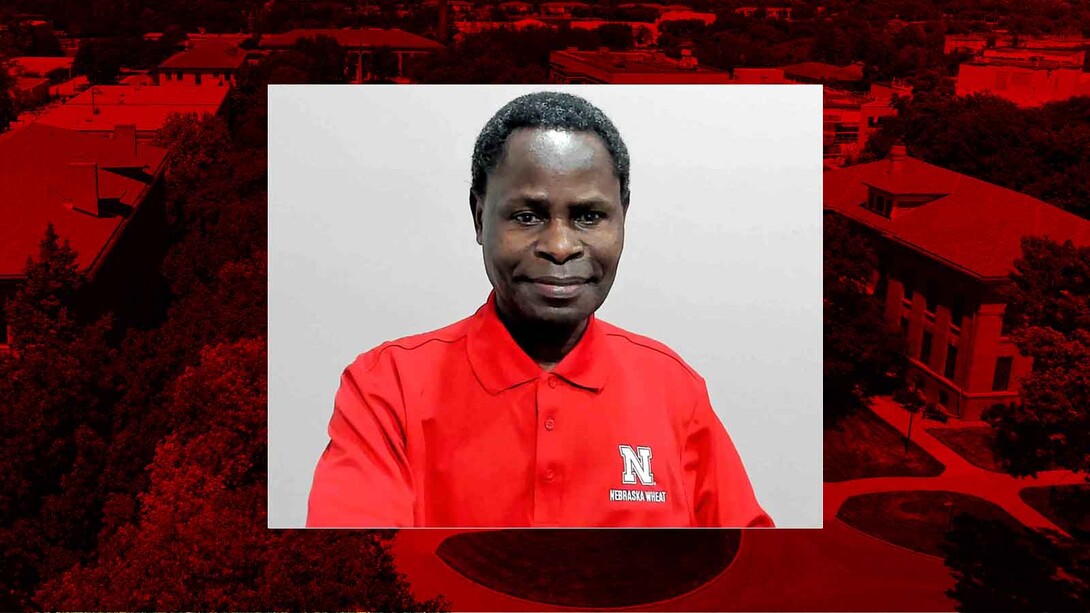
About Stephen
I grew up in a rural village in western Kenya on a small acreage where my parents did subsistence farming. I am the second of eight children, and all my siblings are back home in Kenya. After completing a two year training at a teacher’s college in Nairobi, Kenya in 1985, I taught biology and math at a high school in western Kenya for three years. During the time I taught at this school, I met four Americans who were graduates of Davidson College, North Carolina. They were teaching at the school as volunteers after they graduated from Davidson. They connected me to Davidson where I applied and enrolled in the fall of 1988. I returned to Kenya after graduation from Davidson in 1991 and taught math at a high school in the western part of the country for a little over a year. I then returned to the U.S. in 1992 to go to graduate school where I fulfilled my dream of becoming a plant pathologist. Growing up on a small rural farm and helping my parents to raise crops and livestock cultivated in me a passion for agriculture and inspired me to pursue graduate studies in agriculture, specifically in plant pathology. I knew this would give me an opportunity to work in the field, which I enjoy.
What is your position at the University of Nebraska-Lincoln?
I am an extension plant pathologist with extension and research responsibilities on diseases of small grains, forages and ornamental crops. My research involves studying the factors that favor the development and spread of plant diseases, an area of plant pathology known as epidemiology, as well as developing strategies for effective management of these diseases in order to reduce or prevent crop loss. Specifically, I study how to integrate various strategies to most effectively manage Fusarium head blight, a devastating disease of wheat and other small grain cereal crops.
What drew you to the University of Nebraska-Lincoln?
I have a passion for agriculture and UNL is one of the leading universities in the U.S. in teaching, research and outreach in agriculture. I had heard that the work environment at UNL was excellent, and the administration was very supportive of faculty, students and staff. I have found that to be true during the nearly 17 years I have been at UNL.
What aspect of working in an education setting do you enjoy the most?
The opportunity to interact with faculty, staff and students and freely share information and innovative ideas. In an educational setting, I am always learning something new every day because there are numerous opportunities to interact and learn.
What do you consider your greatest achievement?
I consider my greatest achievement to be the information generated from my research on the epidemiology and management of Fusarium head blight of wheat. This information has enabled Nebraska wheat growers to more effectively manage the disease, saving them tens of millions of dollars during the 15 years I have been working on the disease. I have also collaborated with the UNL small grains breeding program, led by Dr. P. Stephen Baenziger (retired in May 2021), the previous small grains breeder, screening wheat lines for resistance to Fusarium head blight, leaf rust and stem rust. This work has contributed to the release of wheat varieties with resistance to these diseases that have had a huge economic impact in Nebraska and surrounding states. Scholarly publications from my research have contributed to scientific knowledge which can be used by researchers, policy makers and other stakeholders to reduce crop losses due to diseases, thus contributing to global food and economic security.
What is something that most people don’t know about you?
Most people don’t know about my long journey from a rural village in Kenya to a professor at a Big Ten University in the U.S. It was made possible by a combination of many factors, including hard work, perseverance and most importantly, people who cared about me – family, friends, colleagues, and mentors – and to whom I am grateful.
What is your life like outside of work?
When I am at home I like to cook, listen to African music and watch news and sports. In the spring and summer I do gardening, mainly growing vegetables. I try to rest as much as I can so I am fresh the next day when I go to work. I travel whenever I get the opportunity to do so, but that has been reduced significantly during the last couple of years due to the COVID-19 pandemic.







